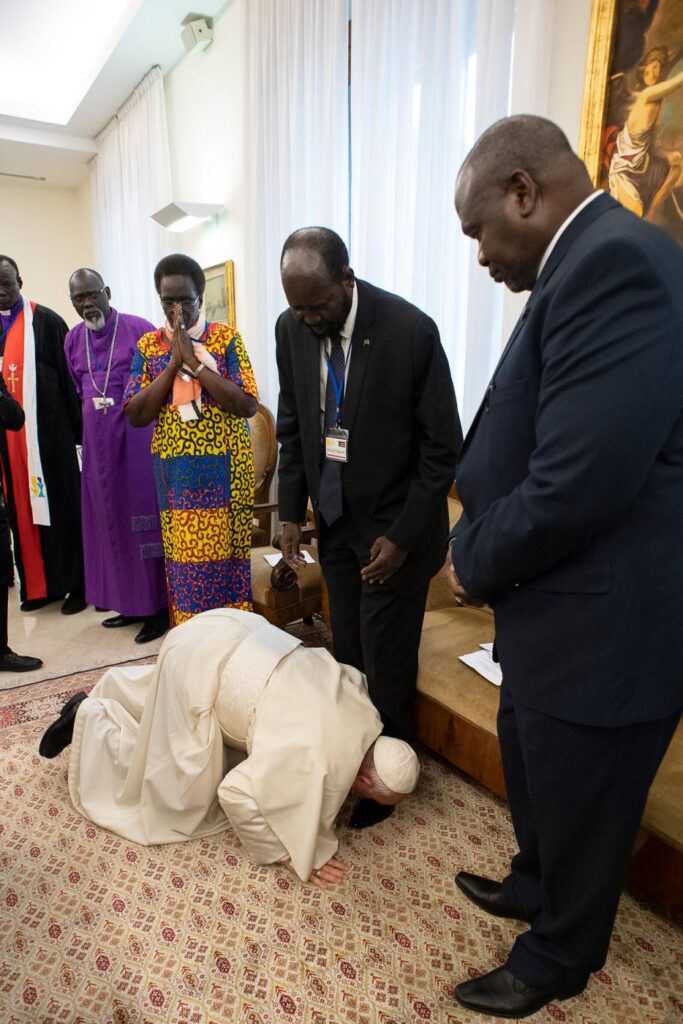
Interfaith dialogue and peacebuilding were integral to Pope Francis’ global mission. This commitment was particularly evident in Africa, a continent marked by significant religious diversity, vibrant expressions of faith, and occasional intercommunal tensions and conflict. The Pope’s approach emphasized encounter, reconciliation, and a shared moral responsibility for peace across religious boundaries.
1. A Theology of Encounter and Dialogue
Pope Francis expressed a vision of brotherhood grounded in our shared humanity and the belief that peace is a common goal. His encyclicals, Evangelii Gaudium, Fratelli Tutti, and the collaboration with Grand Imam Ahmad al-Tayyeb in the Document on Human Fraternity (2019), offer a theological basis for viewing “the other” not as a threat but as a partner in the quest for justice and reconciliation. These writings find relevance in Africa, where religious identity is often closely linked with ethnic, social, and political contexts.
2. Symbolic Visits and Personal Engagement
Francis’ trips to African nations symbolize solidarity and promote peace. In 2015, during a devastating civil war marked by deep religious divides in the Central African Republic (CAR), he opened the Holy Door of the Bangui Cathedral, turning the ravaged city into a “spiritual capital of the world.” He also visited a mosque in a Bangui Muslim neighborhood, emphasizing the significance of Muslim-Christian coexistence.
Similarly, during his 2019 visit to Mozambique, Madagascar, and Mauritius, he emphasized the role of religious leaders in promoting reconciliation and condemned systems of inequality and ecological degradation that often underlie violent conflict.
3. Support for African Religious Leaders and Grassroots Movements
Pope Francis has consistently affirmed the importance of African religious leaders—whether Christian, Muslim, or traditional—in promoting peace. He has reached out to organizations such as the African Council of Religious Leaders and conveyed messages to the Symposium of Episcopal Conferences of Africa and Madagascar (SECAM), fostering local interfaith initiatives and grassroots mediation efforts.
A notable instance is his endorsement of peace efforts in South Sudan. In a striking act in 2019, he welcomed political leaders to a spiritual retreat at the Vatican and kissed their feet, pleading with them to pursue peace. This action profoundly touched both religious and secular groups throughout the continent.
4. A Voice Against Extremism and Exploitation
Francis has firmly opposed religious extremism and the use of faith for political aims, as well as the exploitation of Africa’s people and resources. His criticism of “colonial structures” and “economic imperialism” connects peacebuilding with wider concerns of justice and human dignity. This comprehensive understanding of peace—more than just the lack of violence—has influenced interfaith collaboration across the continent to include joint advocacy efforts for the impoverished, migrants, and the environment.
A Legacy of Peace Beyond Borders
Pope Francis’ role in promoting interfaith dialogue and peace in Africa is a significant feature of his papacy. Through impactful actions—such as praying in mosques, kneeling before leaders affected by war, and relentlessly supporting the underprivileged—he transformed the perception of religious leadership as a unifying force among communities. His approach was always practical, grounded in locations like Bangui, Juba, Maputo, and Kinshasa—places where he actively engaged, listened, and reinforced the message that peace is achievable when we honor each other’s sacredness.
With his death on April 21, 2025, the world lost not just the Bishop of Rome but also a prophetic voice for fraternity, humility, and hope. In particular, for Africa, his memory endures in the countless seeds of peace he planted—among Muslim and Christian youth in conflict zones, among families displaced by war, and among religious leaders who dared to stand together for reconciliation.
In honoring his legacy, Africa’s faith communities are called to carry forward his spirit of encounter—that deep, disarming openness to the other that was the beating heart of Francis’ mission. Even in death, Pope Francis remains a shepherd of peace, and his memory will continue to inspire a continent yearning for healing and unity.
May his memory be a blessing—and a call to action.
